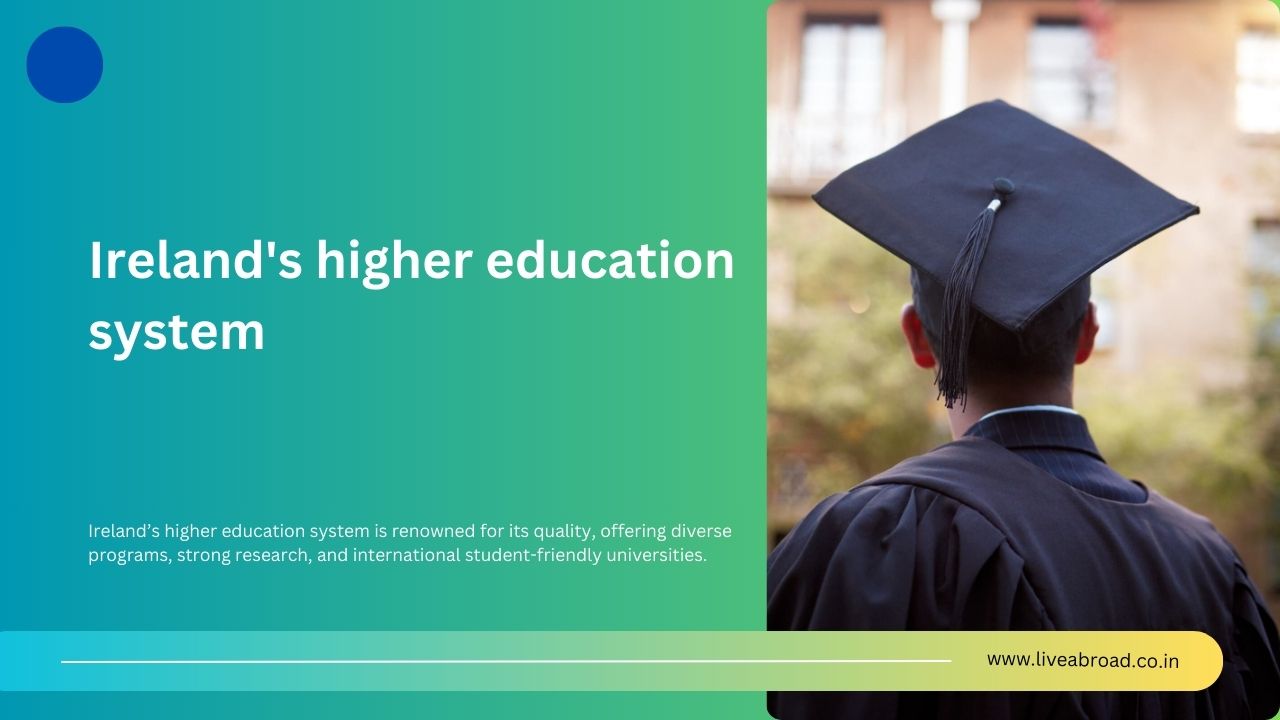Throughout Ireland’s lengthy and occasionally challenging history, education has been highly regarded.
Currently, the higher education system in Ireland provides exceptional programs for international pupils of all ages. Over one-tenth of full-time students are international.
The government provides funding to the majority of educational institutions. This implies that the quality of education is exceptionally high, and international students who complete their studies in this institution have a global competitive advantage.
Universities, institutes of technology, and colleges of education are the primary providers of higher education. A variety of other third-level institutions offer specialized education in fields such as law and medicine.
The institution you select is contingent upon the level of qualification you are seeking and the subject area in which you are interested.
What are the higher education institutions in Ireland?
University
In Ireland, there are seven universities, each of which is ranked in the top 3% of institutions worldwide.
A wide variety of study disciplines are available for undergraduate and postgraduate degree programs.
International offices are established at Irish universities to assist international students in acclimating to academic life and participating in campus social activities.
Institute of Technology
Institute of Technology Ireland has 14 Institutes of Technology that offer educational and training programs in fields such as business, science, engineering, linguistics, and music.
There are various courses and entry requirements at each institution, and study options are available at the certificate, diploma, and degree levels.
College of Education
Colleges of Education offer specialized instruction to students who aspire to become school teachers. This can be accomplished by completing either a three-year Bachelor of Education or an 18-month postgraduate diploma.
Students typically pursue a primary degree and subsequently, a postgraduate diploma in order to teach at the post-primary level.
Private College
Private institutions provide specialized education and training in a variety of fields, including agriculture, business studies, medicine, law, and vocational training. Students acquire qualifications at the vocational, certificate, or degree levels.
In order to enhance their language abilities, Irish universities provide international students with opportunities to enroll in English foundation programs. The minimum requirements are typically equivalent to IELTS 5.0.
What types of degrees can you study?
Undergraduate
A bachelor’s degree in a general field of study typically requires three to four years of full-time study. An average of five years is required in disciplines such as architecture, veterinary science, and dentistry. A bachelor’s degree may be awarded as a General Degree, Honours Degree, or BA (Special Degree) contingent upon the course of study.
Postgraduate
Some pupils acquire postgraduate qualifications, such as a postgraduate diploma, master’s diploma, or PhD.
Programs may be either research-based or instructional. The focus of this form of study is more narrow and the approach is more specialized than that of undergraduate study.
Postgraduate diplomas are frequently vocationally focused and are explicitly associated with particular professions.
Coursework and a thesis are typically required for master’s degrees, which typically last one to two years. The average duration of a PhD program is three years.
What is a third-level degree?
A bachelor’s degree, or third-level degree, is a degree that is obtained in a college or university.
Study methods in Ireland
How will you be assessed?
This is contingent upon the subject matter of your studies; however, you will typically complete fewer tasks that are lengthier in duration than smaller tasks that are continuously evaluated.
Examinations have been a traditional method of evaluating the progress of students in Irish universities. However, in the present day, numerous modules and courses in Ireland are graded primarily on the basis of assignments.
How do you prepare for examinations?
Examinations are typically administered at the conclusion of semesters. ‘Sitting examinations’ is the term used to describe them.
Throughout the year, it will be necessary to read and complete assignments in order to prepare for exams. In the weeks preceding the examination, it will be necessary to review the material that you have already studied.
It is advisable to request copies of past exams from your tutor or university library in order to gain experience in responding to queries.
Exams can be particularly difficult for international students. The student counseling service on campus typically provides free counseling services for individuals who are experiencing excessive tension.
What is plagiarism?
It is crucial to ascertain the preferred method of referencing material in your department when composing assignments.
Referencing is the process of acknowledging the source of the ideas, sentences, and phrases that are incorporated into your assignment. Plagiarism is a severe offense that occurs when this is not done.
If you have copied a sentence verbatim from another author in your assignment, you must enclose the sentence in quotation marks and cite the author. The same principle is applicable when you replicate an author’s concept, regardless of whether you articulate it in your own terms.
If you are uncertain, you may consult your tutor for assistance.
